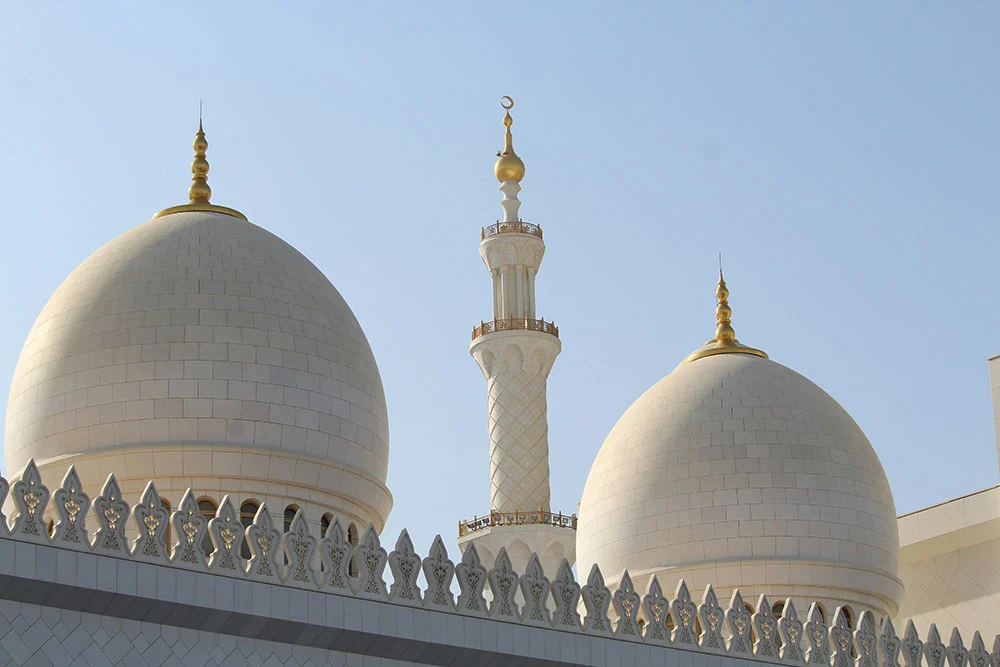This guide is for tourists who want to visit mosques in Dubai. It covers the key etiquette to follow, which mosques are open to visitors, and practical details such as dress code, timings, and access.
Use it to understand what’s allowed, what to expect, and how to plan your visit properly.
Understanding Significance of Mosques
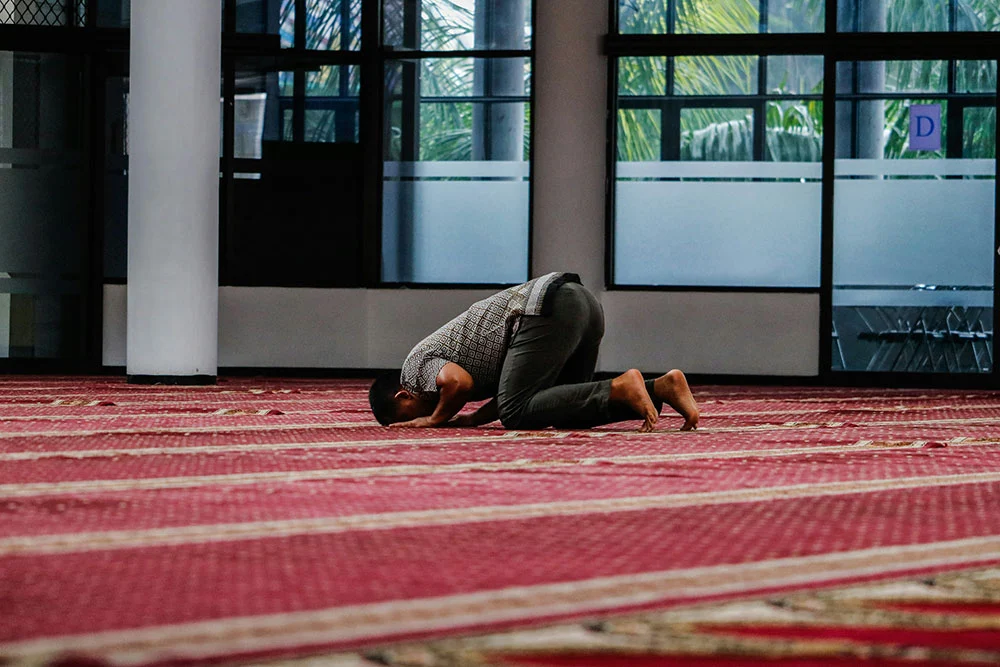
Mosques hold significant cultural and religious importance in Dubai. They not only serve as spiritual centres but they also contribute to the city’s architectural beauty.
Furthermore, all imams in Dubai’s 2,000+ Sunni mosques are government employees, encompassing both citizens and non-citizens. While visiting mosques, it is important to respect the religious customs and attire rules.
Takeaway: As a visitor, showing respect in mosques is fundamental.
Etiquette for Tourists Visiting Dubai Mosques
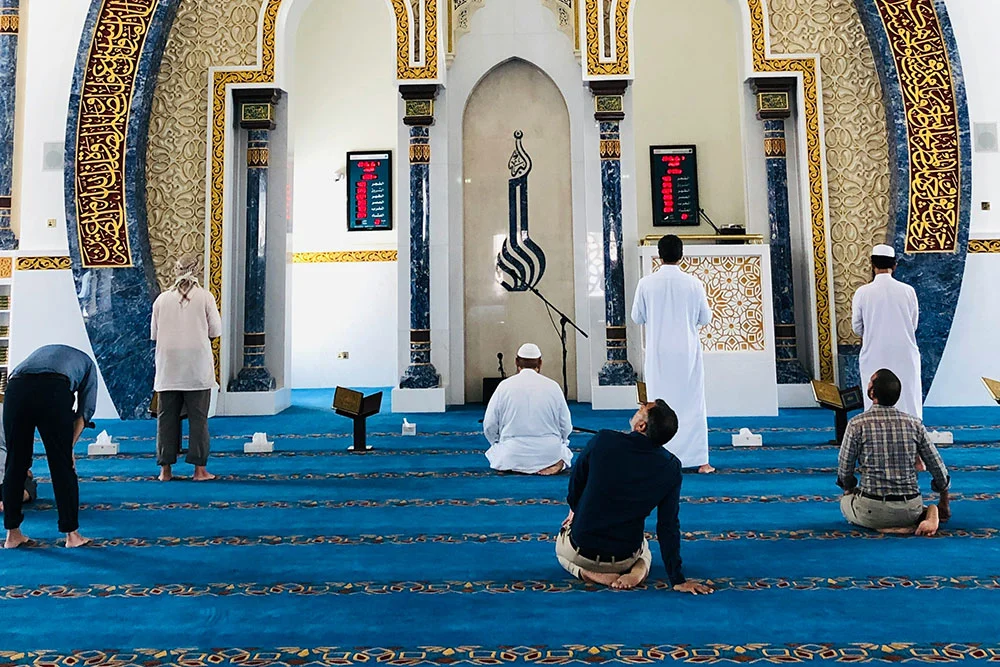
Visitors are welcome in many of Dubai’s mosques, but there are clear expectations around behaviour, clothing, and respect for worshippers. The guidelines below outline what to know before entering.
Dress Code
- Clothing must be modest and loose-fitting.
- Shoulders and legs must be covered for all visitors.
- Women must cover their hair; many mosques provide abayas and scarves at the entrance.
- Avoid transparent, tight, or branded clothing that may draw attention.
Photography
- Photography rules vary by mosque.
- Always ask permission before taking photos, especially inside or during prayer times.
- Avoid photographing worshippers without consent.
Behaviour Inside the Mosque
- Speak quietly and avoid unnecessary movement.
- Mobile phones must be switched to silent or turned off.
- Do not point feet towards the mihrab (the prayer niche) or towards people praying.
No Food, Drink, or Smoking
- Eating, drinking, gum-chewing, and smoking are not permitted anywhere inside the mosque grounds.
- Chewing gum is considered disrespectful during prayer or sermons.
Cleanliness and Personal Hygiene
- Enter with clean clothes and good personal hygiene; this is an important part of Islamic practice.
- Shoes must be removed before entering the prayer hall. You may be given a shoe bag.
Gender-Separated Areas
- Many mosques have separate entrances or prayer spaces for men and women.
- Follow signage or instructions from staff or volunteers.
No Sleeping or Lounging
- Sitting respectfully is fine, but lying down or using the mosque as a rest area is not allowed.
Visit Mosque official websites to find out more details on rules for tourists.
Mosques Tourists Can Visit
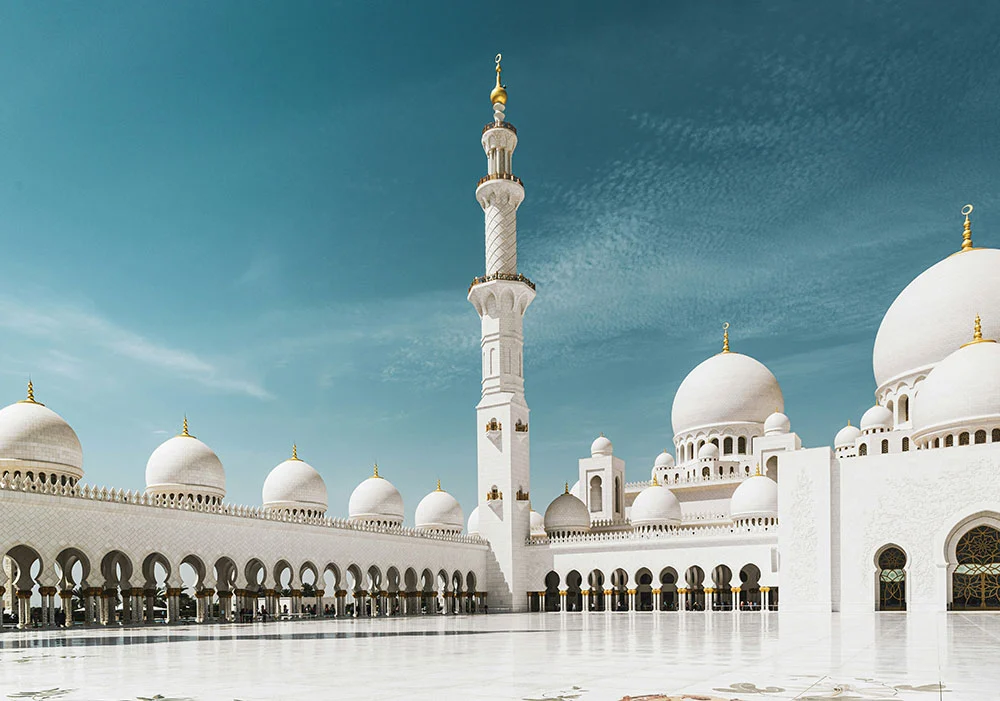
With thousands of mosques across Dubai, here is just a small selection of recommended mosques tourists can visit in their time visiting Dubai.
Dubai’s Grand Mosque
Dubai’s Grand Mosque, located in Bur Dubai, features 45 small domes, a large central dome and nine minarets. Non-Muslims can usually view the exterior only, as interior access is restricted.
Visit the official Bur Dubai Grand Mosque page on the Dubai tourism website for details.
Jumeirah Mosque
The Jumeirah Mosque is a significant landmark in Dubai and one of the few mosques officially open to non-Muslim visitors. It is well-known for its architecture and offers guided cultural tours.
Visit the official Jumeirah Mosque website for timings and booking information.
Ibn Battuta Mall Mosque
Inside Ibn Battuta Mall, visitors will find a dedicated prayer hall themed in line with the mall’s tribute to the 14th-century explorer Ibn Battuta, though it is not a full tourist-access mosque in the same way as Jumeirah Mosque.
See the Ibn Battuta Mall website for more details.
Al Farooq Omar Bin Al Khattab Mosque
Al Farooq Omar Bin Al Khattab Mosque in Al Safa 1 is built in Andalusian style and offers guided tours for non-Muslim visitors, featuring decorative interiors and landscaped gardens.
Visit the official Al Farooq Mosque website for visiting information.
Ali Bin Abi Talib Mosque
Ali Bin Abi Talib Mosque is open daily, with official visiting hours listed on its website. The mosque is known for its traditional Islamic architecture and offers visitors a chance to observe local religious customs in practice.
Located just a short drive from Dubai Old Town towards Bur Dubai, it’s easy to combine a visit here with nearby sites such as Khitai Al Madina.
For more context on the area and other historic stops worth adding to your itinerary, see our guide to visiting Dubai Old Town.
Hor Al Anz Mosque
Hor Al Anz Mosque is one of the significant mosques tourists can visit in Dubai.
Built to serve the thriving Hor Al Anz community, the mosque also reflects the area’s blend of historic settlement and modern urban growth, offering a quieter, more local spiritual experience compared with Dubai’s more tourist-focused mosques.
Hatta Mosque
The mosque commonly referred to as the Hatta Mosque is located in the mountain enclave of Hatta. It has gained attention for its sustainability features and forms part of a wider cultural area including traditional houses, a fort, and a restored water channel.
Read more on the Al Rayan Mosque sustainability page from DEWA.
Planning Your Visit to Dubai Mosques
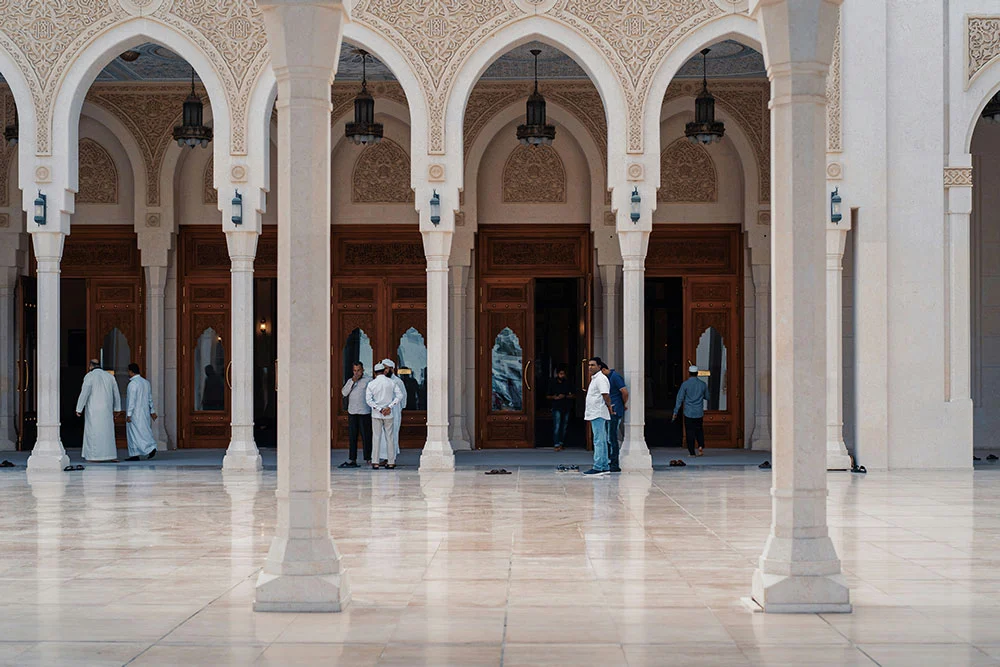
Before you go, it’s helpful to check booking slots (if required), organise your transport, and consider whether your accommodation and schedule work around timed visits. Some mosques run guided tours or have fixed visiting windows, so a little advance planning ensures a smooth experience.
Booking Time Slots & Guided Tours
Some major mosques, like Jumeirah Mosque in Dubai, run guided visits at set times. While prior booking might not always be required, arriving early (30 minutes before tour start) is advised.
Transport & Getting There
Plan how you’ll get to the mosque, whether that be a taxi, ride-share or public transit. Make sure to check parking availability if you’re driving. Some mosques in the UAE also restrict visitor access during central prayer times.
Accommodation & Scheduling
If you’re staying nearby, plan your mosque visits around scheduled tour times and opening hours to avoid arriving during prayer. If you’re still choosing where to stay, Zennova Holidays can recommend accommodation options that make it easy to visit key mosques and explore Dubai’s Old Town on foot.
Important Religious Events in Dubai Mosques
Dubai mosques host key religious events like Al-Mawlid Al-Nabawi Al-Sharif, which commemorates the birth of Prophet Muhammad. Special prayers and sermons are held for this event across all mosques.
During Ramadan, events such as recitations by distinguished Quran readers can be experienced at the Al Farooq Omar Bin Al Khattab Mosque.
Another prominent religious event is Eid Al Milad, marked with special prayer gatherings and songs in mosques across the city.
Accessibility in Dubai Mosques for Tourists
Most mosques in and around Dubai’s Old Town, including the well-known Jumeirah Mosque, offer wheelchair access. Some visitors note that reaching the entrance can be slightly inconvenient, as the accessible route is via the car park rather than the main gate. However, once inside the grounds, the pathways are flat and fully wheelchair-friendly, allowing access around the exterior of the mosque.
Do keep in mind that not all mosques or neighbourhoods in Dubai are open to tourists, and accessibility standards vary. Always check the mosque’s visiting rules, opening hours, and accessibility information before you go.
Helpful Resources for Tourists Visiting Dubai Mosques
- Jumeirah Mosque Visitor Information – Official details on tour times, dress code, and rules for non-Muslim visitors.
Visit: https://www.jumeirahmosque.ae - Al Farooq Omar Bin Al Khattab Mosque & Centre – Visitor hours, cultural centre information, and virtual tour.
Visit: https://alfarooqcentre.com/en/visit - SMCCU (Sheikh Mohammed Centre for Cultural Understanding) – Book cultural mosque tours, heritage meals, and Q&A sessions on Emirati customs.
Visit: https://cultures.ae - Visit Dubai – Official Tourism Guide – Government tourism site with listings for mosques, historic districts, and practical travel info.
Visit: https://www.visitdubai.com - RTA Journey Planner (Public Transport) – Helps you plan metro, bus, and taxi routes to major mosques and Old Dubai.
Visit: https://www.rta.ae

